Men’s Involvement Seminar in Improving Mother’s Health as an Effort to Accelerate the Reduction of Maternal Mortality Rate (MMR)
Sahabat Setara, Jakarta – The gender disparity, which also has implications for the high maternal mortality rate (MMR), requires strategic efforts to encourage an increased role for men in supporting women’s health, especially women’s reproductive health. The Ministry of Women Empowerment and Child Protection (MoWECP) was trying to reduce MMR in Indonesia. One of the efforts to reduce maternal mortality can be done by improving the health of mothers and babies. By improving maternal health, maternal death can be prevented. This was where the roles and responsibilities of men were very important both as husbands and fathers to always accompany, support and work together to improve maternal health starting from pregnancy, childbirth and post-delivery (breastfeeding to care). In overcoming the problem of MMR, an integrative and comprehensive concept of involving men was needed.
The Deputy for Gender Equality was trying to learn more deeply and find solutions to overcoming maternal mortality in Indonesia by holding a Men’s Involvement Seminar in Improving Mother’s Health as an Effort to Accelerate the Reduction of MMR held at the Pullman Hotel, Jakarta. This event was also a sequence of Mother’s Day commemorations which peak in December 2022.

“We are holding this seminar because we are concerned that the Maternal Mortality Rate (MMR) in Indonesia is still high. Referring to the Ministry of Health data in 2020 showed that MMR in Indonesia of 2018 is 305 per 100.000 live birth, and this number is still far from the SDGs target of 70 per 100.000 live birth in 2030. MMR target itself in 2030 is expected to decrease to 131 per 100,000 live births,” said Ms. Lenny N. Rosalin, Deputy Minister for Gender Equality in her remarks at the seminar.
Maternal mortality at productive age causes loss of human resources for the country which certainly affects economic and social development. Maternal mortality was also related with national pride. International agreement regarding decreasing MMR as one of the SDGs target and efforts made also achievement must be reported periodically. The SDGs target has not been achieved and still far from the target set, even though the remaining time to 2030 was only 8 years away.
Deputy of Bidang Keluarga Berencana dan Kesehatan Reprodksi, BKKBN, ibu Doctor Eni Gustina said that “In 2022 the maternal mortality rate will decrease by 2,420 people compared to 2021, which is 6,339 people. The high maternal mortality rate in 2021 is due to the co-19 pandemic. This is because 50% of pregnant women who get Covid die. So that at that time the BKKBN encouraged the Ministry of Health to immediately give vaccines to pregnant women and this naturally went through a long debate because at that time there was no vaccine available that was safe and acceptable to pregnant women.”

Doctor M. Yusuf from the Ministry of Health said that interventions had been carried out to reduce maternal mortality, namely with sensitive interventions (social determinants and access to health facilities) and specific interventions (quality health services). Several things that still concern us all are the still high maternal mortality rate in Indonesia, delays in decision making which contribute to maternal mortality, the lack of men’s role in intervening social determinants, increasing knowledge and the role of men in improving maternal health and advocacy support socialization of increasing the role of men in maternal health.
The role of all parties in efforts to reduce maternal mortality was by upholding the equality and equality of men and women to respect and protect each other. Moreover, planning pregnancy to childbirth was a shared responsibility between women and men, male groups involved in reproductive health programs more should be given, and finally the involvement of all parties was a must because a reduction in MMR will not be achieved if it was not supported by all elements of society.
“Male groups as educators can have a role to give information and education to the people around, so that a person or group is able to make the best decision based on the knowledge they have, especially related to their health. Of course, we have to support this with appreciation so that many people, especially men, are interested and can educate others in a light and open way so that no one feels patronized or pushed into a corner.” Said Ms Zumrotin K. Susilo From Women Health Foundation. “I really believe that NGOs or religious organizations must support this activity, namely the involvement of men in reproductive health, especially in reducing maternal mortality because they have a large and militant mass so what they start will have a big impact on society,” she added in closing the presentation on the activity.


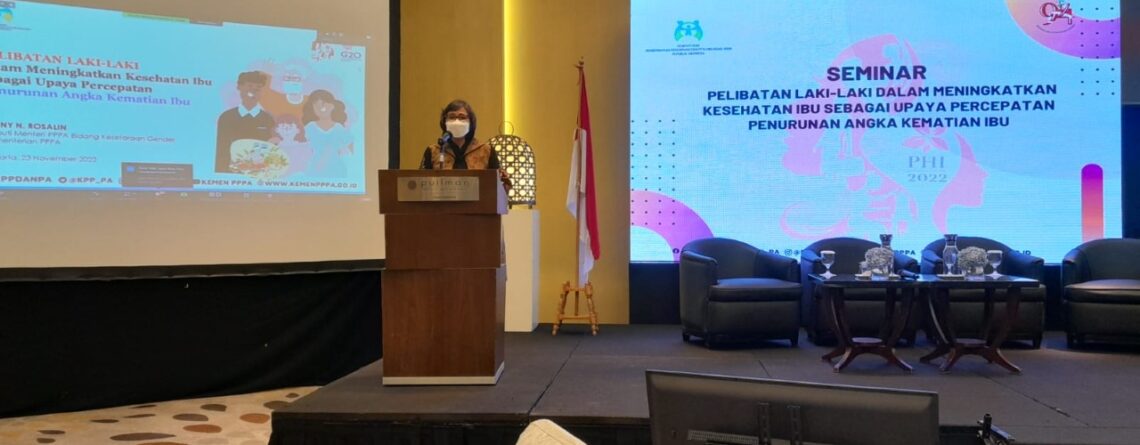
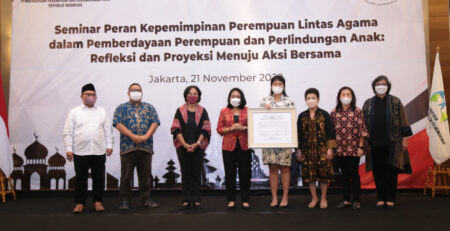
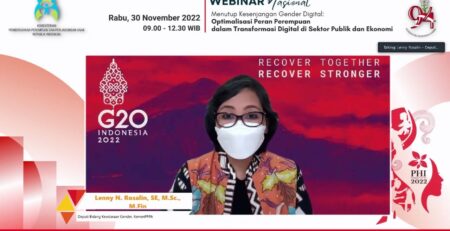
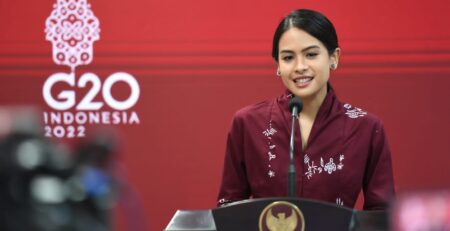

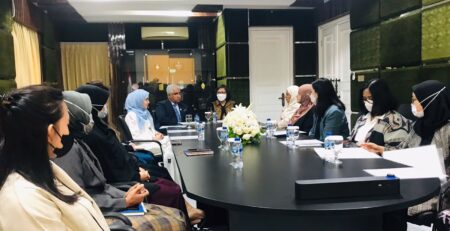
Leave a Reply